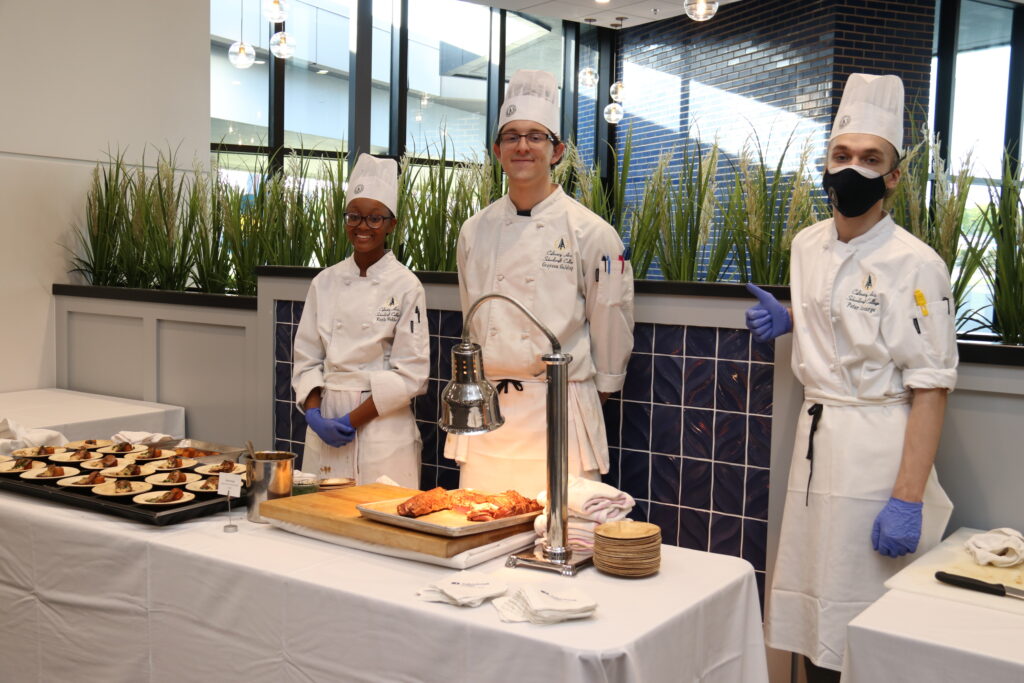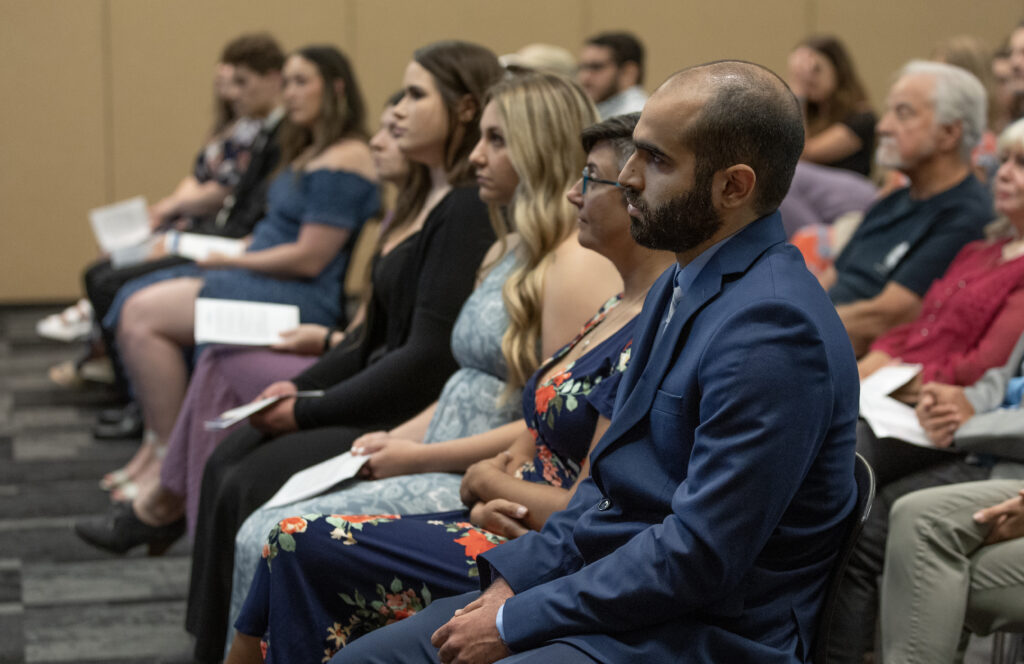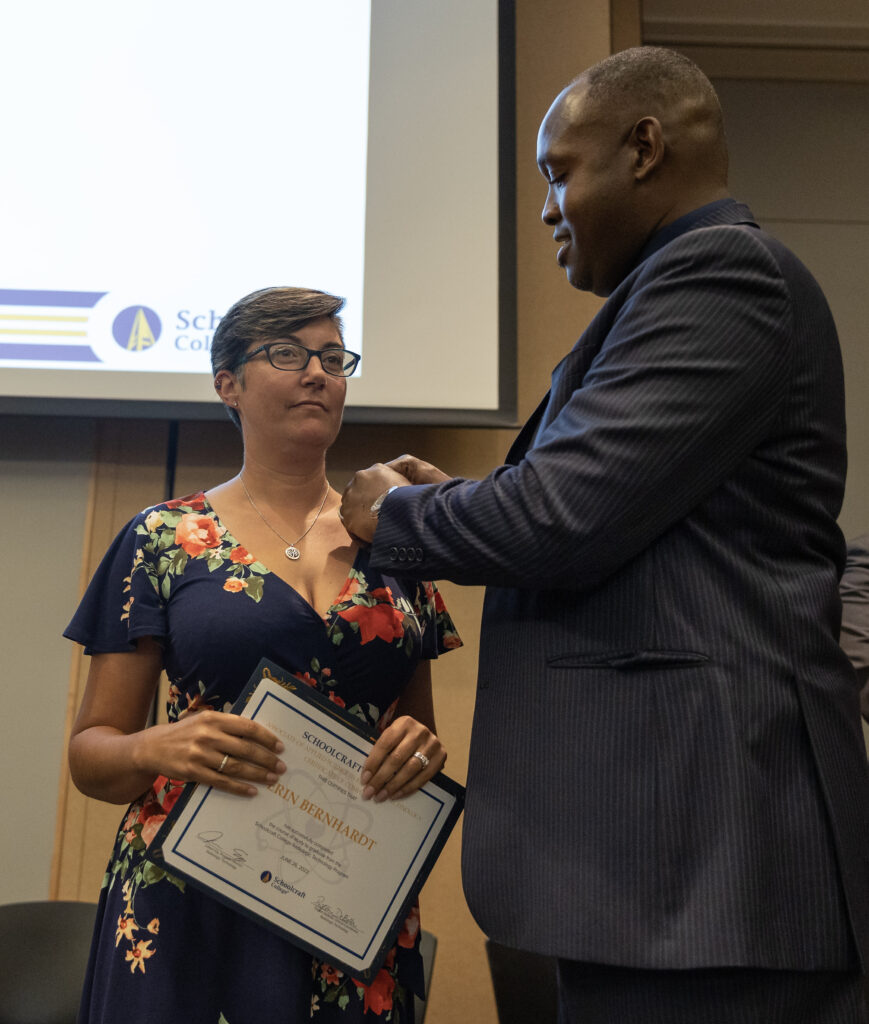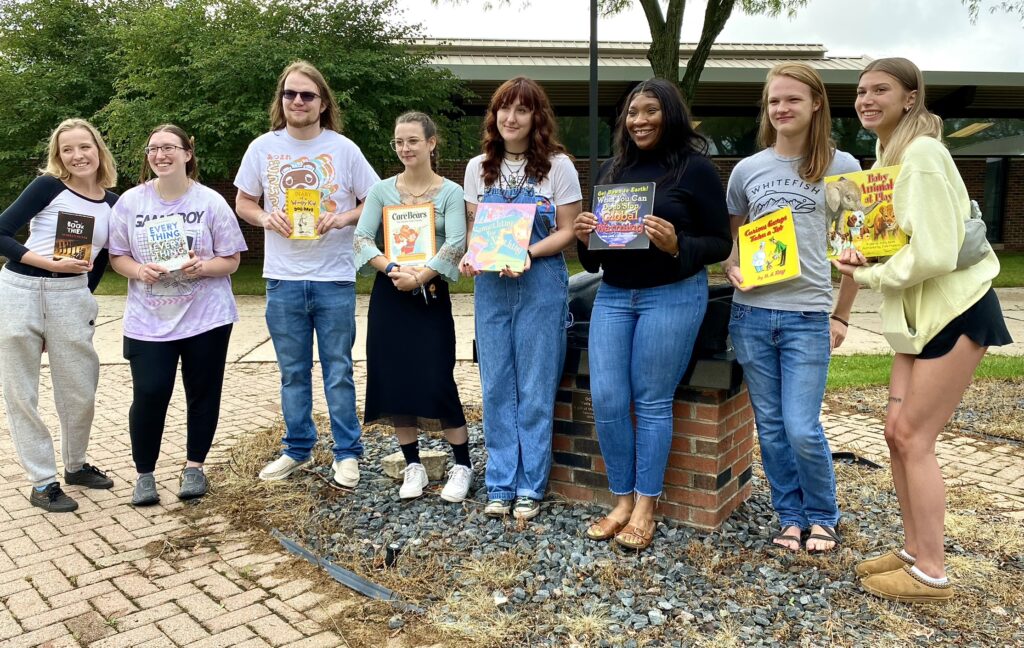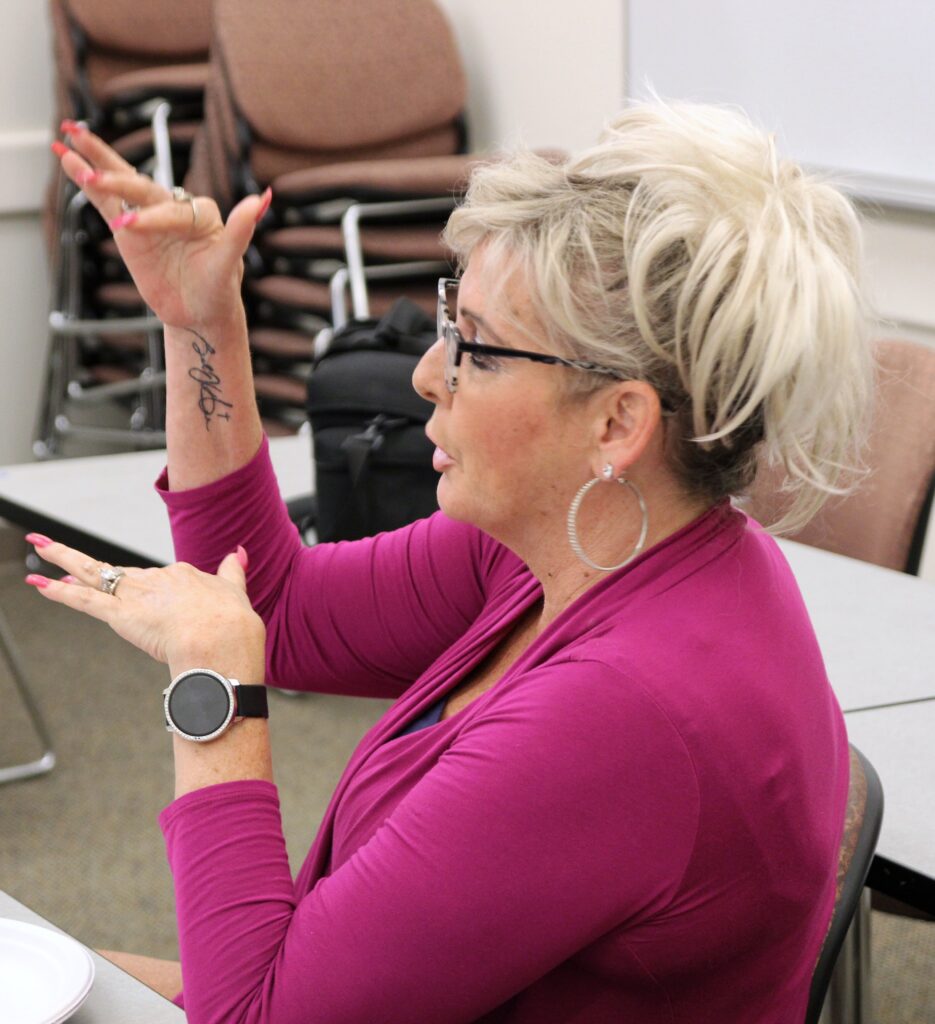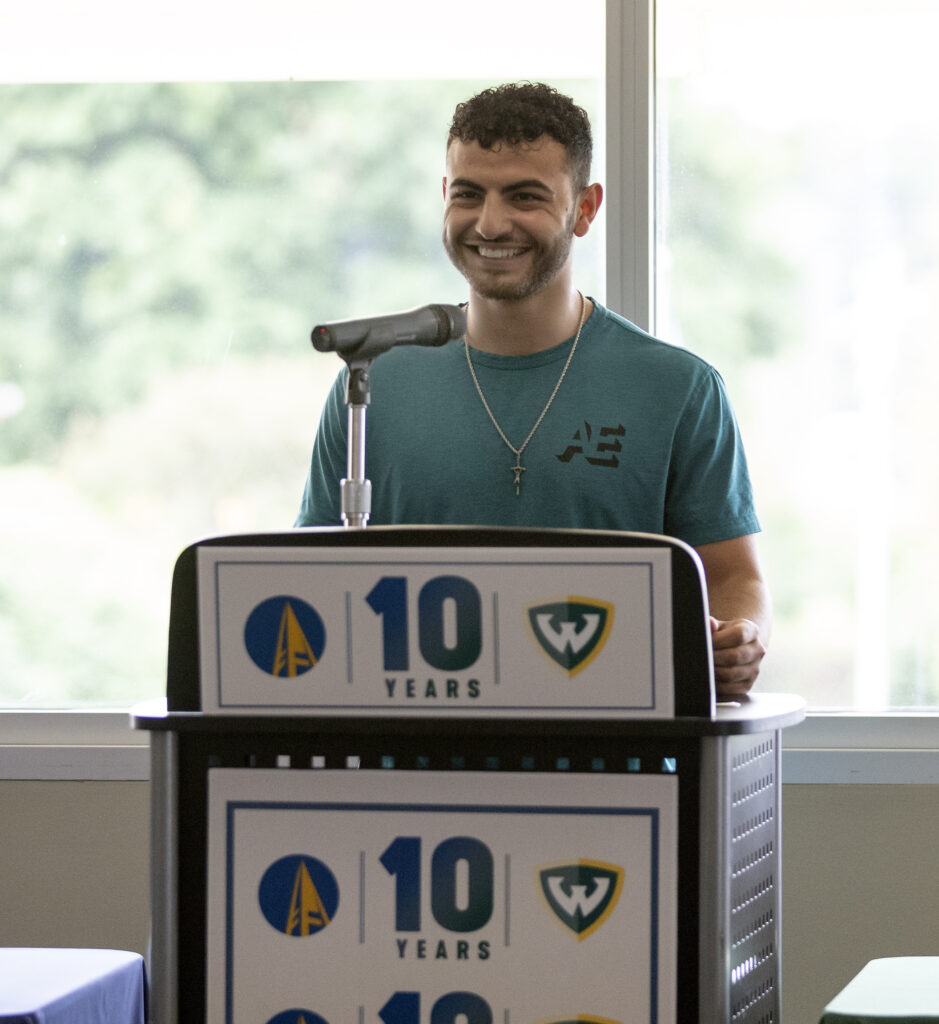Several students spent part of a day on the Alliance on the river, learning about the ecology of the river and its role in international politics.
Several Schoolcraft College students recently did what those on Gilligan’s Island couldn’t do: return to civilization after a three-hour boat tour.
Instead of being stranded on a tropical island, those students made it back to land after spending part of the day on Sept. 11 on the Alliance, a 105-foot schooner with three masts that takes guests back in time to the days of sailboats dotting the Great Lakes.
Sponsored by the University of Michigan’s College of Literature, Science and the Arts Transfer Bridges Program, students enrolled in English and Anthropology classes spent time on the ship as a part of the Detroit River Story Lab, which provides experiential learning opportunities that focus on the river’s cultural and environment learning about ecological issues, including measuring water depth and clarity; as well as exploring animal and plant life along the river. Students also had the opportunity to learn about the ship’s operations and even had a chance to navigate the river’s waters.
“On the schooner we all participated in different activities learning about the biodiversity of the Detroit River, learning what it takes to run a boat successfully, getting a chance to steer the boat, learning the different effects the river had played in societies crucial moments, and how it was beneficial to people in the 18th century to the 21st century,” said Taylor Williams, an Honors Scholar student who attended the program. “A different perspective I gained from this experience was just the overall importance of the effects humans have had on the Detroit River. We have negatively impacted the river so much that the loss of biodiversity in multiple ways has harmed the different species of animals that are living there now.”
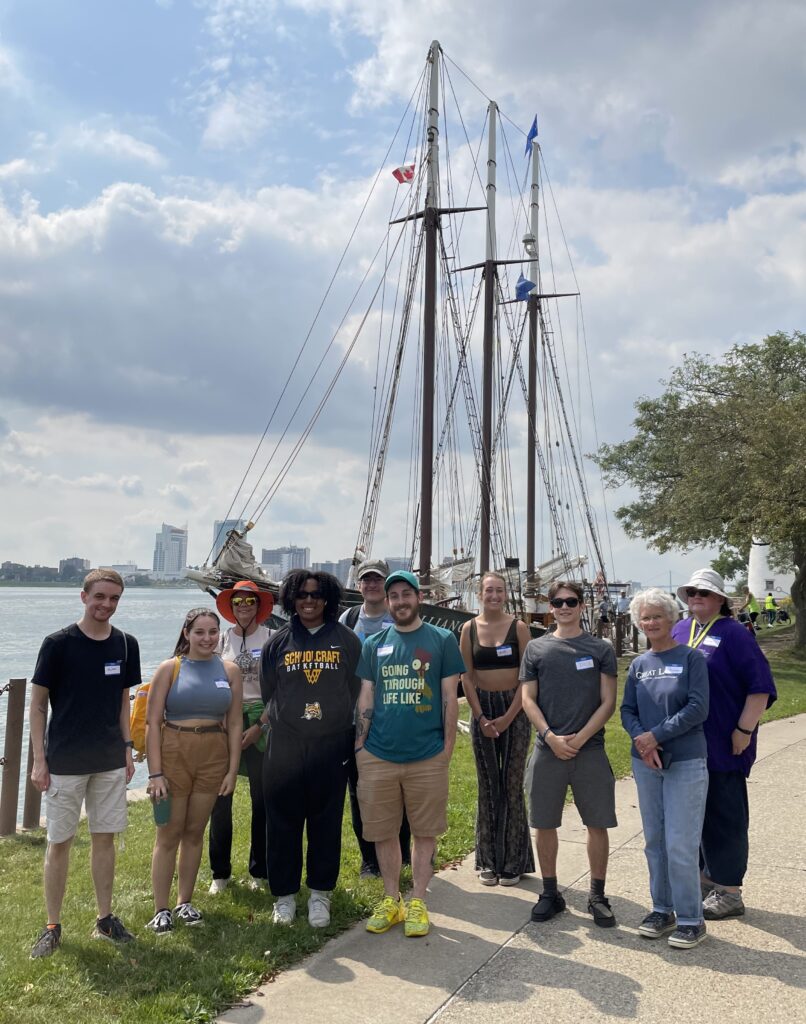
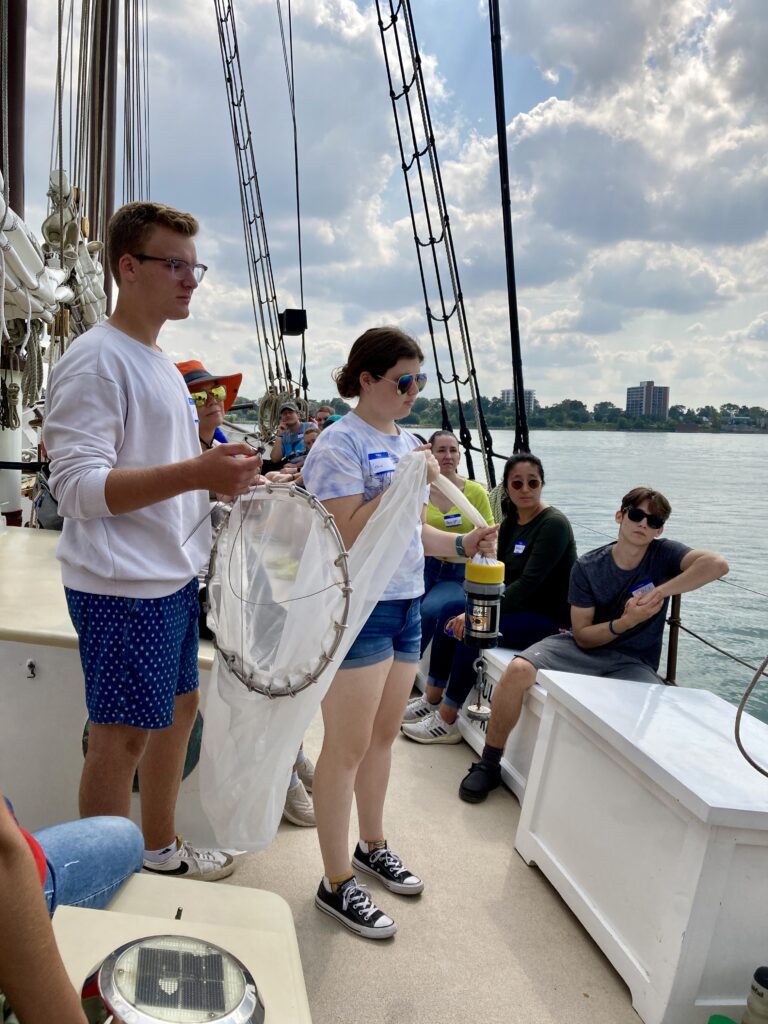
Students completed assignments related to expedition, as well as earned Enrichment hours for Honors Scholars students, which is time spent doing any civic and cultural engagement or leadership conference that is not considered service. The excursion was a way to bring education to life in a multidisciplinary way, learning about topics such as history and ecology, as well as the river’s economic impact and its role in international politics.
Several other instructors also attended, including, Josselyn Moore in Anthropology, Brett Griffiths in English and Jessica Worden-Jones in Anthropology, who also serves as the coordinator for Service Learning.
Errin Stegich-Moloney, a professor of history and coordinator of the Schoolcraft Scholars Honors Program, said while this was the first time students have undertook this expedition, she believes it won’t be the last. “Having the ability to experience a schooner ship like these students did is a great way to learn outside the box,” said Errin T. Stegich-Moloney, a history professor and coordinator for the Schoolcraft Scholars Honors Program. “Getting a firsthand look at a unique part of our state’s maritime heritage was an educational experience our students will not soon forget.”

